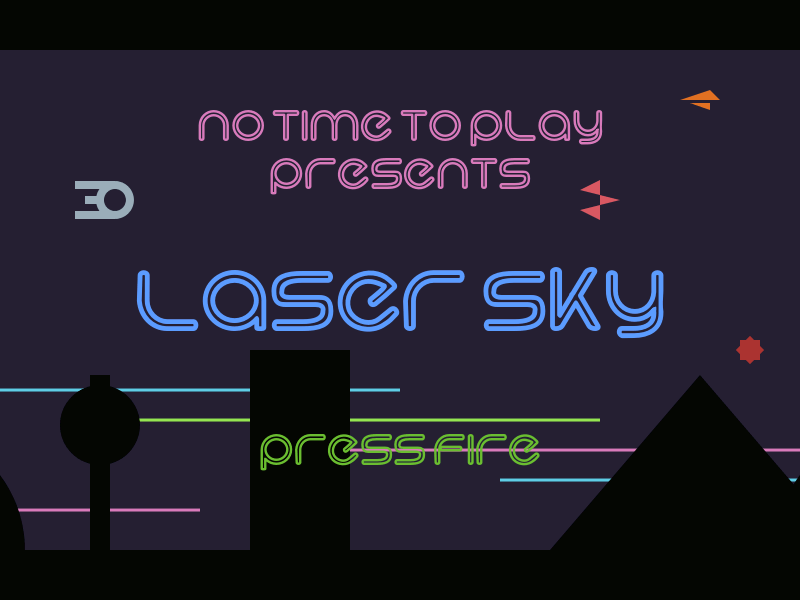Weekly Links #230
When I first released Laser Sky in the autumn of 2016, it took another year to reach a decent number of views on Itch.io, and no other feedback. I pulled it at the time, and didn't have any high hopes for the second attempt.
The finished game got more views than that sometime during its third day online. As of this writing, the count is almost double. It also got two Let's Play videos during the same interval, and multiple comments. Guess that's how much people would rather play a game that's declared complete, even if it's simpler and on average shorter than the old demo!
It may also be that, while itch.io is now a much bigger pond than even just a year ago, it's also much more popular. The player base has increased. People visit, download, talk about us. We're a household name now, and that matters.
How strange then that making money keeps getting harder: more and more, you see people begging for help. I say people, and not creators, because we shouldn't have to continuously prove our worth to society in order to eat. The old saying from the Bible no longer applies in a world where we have food to throw away in literally astronomical quantities. (In fact, I'm pretty sure Ancient Jews would be livid to hear we're doing that instead of giving it to the poor.)
For now, let's see what lessons I can take home from my own recent success... and those of others.

When I made the first version of Laser Sky, things seemed to be going so well. The concept came to me almost fully formed during a walk in the park, on a beautiful autumn day. Graphics worked right on first try; gameplay needed more work, but the core concept gelled quickly, leaving just detail work. And most importantly, early testers loved both. It's still a pleasure to read the original devlog posts, and remember those moments.
The honey moon didn't last. They never do.
A first warning sign should have been how long it took me to compose and balance the enemy waves comprising the demo level. I wanted a traditional shoot'em up, see, with the handcrafted challenge and maybe a dash of narrative woven throughout. Not only that proved exceedingly hard, but after coming up with 8 enemy types just for the first part of the game, I didn't trust myself to make up the dozen more I'd have needed for, say, two more levels. How many distinct behaviors can you come up with? How many simple, abstract shapes?
Worse, that's not the only kind of variety players need. Maybe I could have come up with additional scrolling backgrounds that worked equally well. Extra weapons, however, were another story. Served me well, relying on a gimmick.
Long story short, I ran out of steam. And then the public response to the game was lukewarm: while enough people saw it, nobody seemed to care. So much for all the trouble.
Fast forward two years, when in a sudden flash of inspiration I revived another shooter prototype, itself two years older than Laser Sky, applying some of the lessons learned while making the latter. In fact, both games have now influenced each other in many ways. And the key insight was, the same technique that enabled those gorgeous scrolling skylines in both games could easily be used to generate endless waves of enemies, in a balanced mix that never feels repetitive. Such is the power of prime numbers!
For now, this is helped by the shortness of the game: it's hard to go on for much longer than ten minutes. But the technique scales, and could be easily combined with manually placed content. That however would take a stronger theme, and more detailed artwork.
Something to keep in mind for the future, then. In the mean time, have fun!
In the way of an early weekend read, we have the first in a series of articles about making a game of chess for the PICO-8 fantasy console. While it sidetracks into AI and UI considerations, most of it is an extensive discussion of visual design, including numerous comparative studies. A good read, too, refreshingly thoughtful yet easy to follow. Highly recommended.
And that's it for the week, because the world of gaming is as parched these days as Nordic countries. Be well.